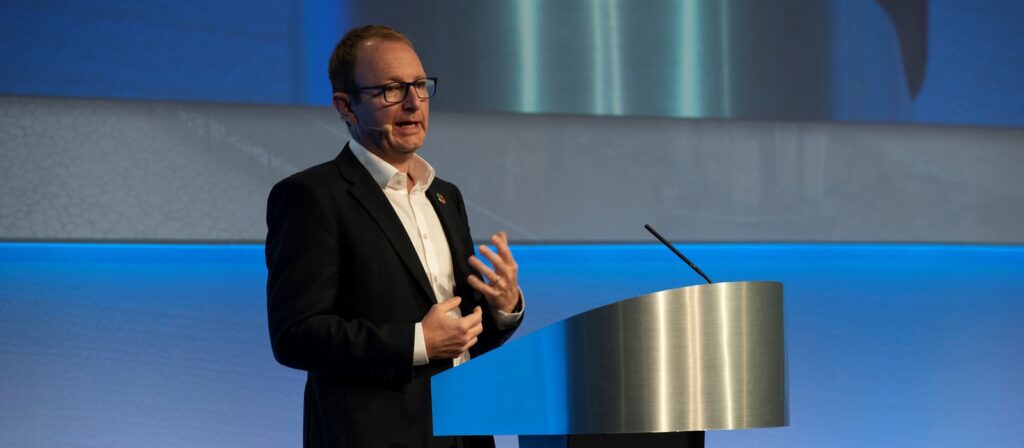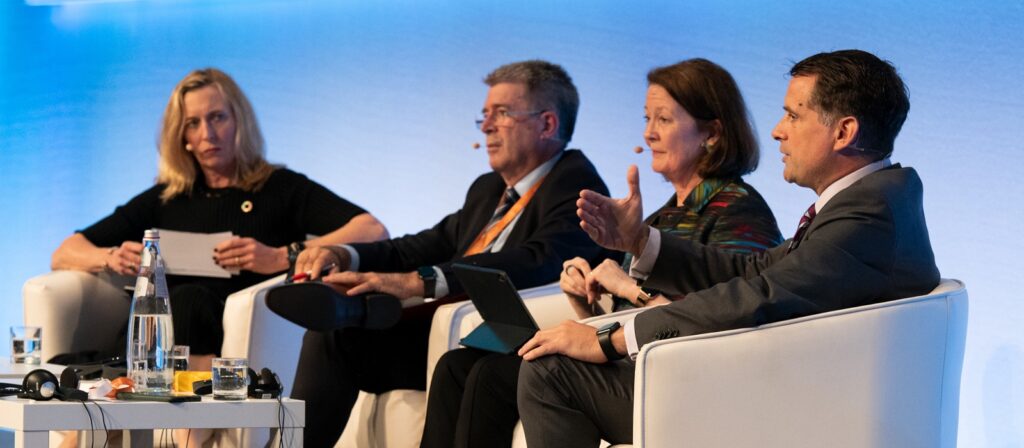Royal London was established in 1861 in the UK to provide funeral services, before expanding into long-term savings, asset management products and life insurance in the UK and Ireland. With over 5,000 colleagues across several locations in the UK, Royal London has two million members and 8.7 million policyholders, managing a total of USD 147 billion in assets under management. Sustainability is embedded in their purpose of “Protecting today, investing in tomorrow. Together we are mutually responsible’. As a purpose-driven organisation, this defines the impact it wants to have on the world, for its customers and for society, and influences the three outcomes they want to achieve: using mutuality for good; helping customers build financial resilience; and playing a part in moving towards a sustainable world.
Royal London is committed to achieving net-zero emissions in their investments by 2050. As 99% of their emissions are from investments, they work closely with their asset managers to transition to a more sustainable investment strategy. However, in addition to their investments, Royal London also has a significant amount of operational emissions related to their facilities and travel, which they have been working to reduce.
The journey began five years ago for Royal London, when in 2019, the group carried out a review of their position to establish a baseline. At that point, they had already established a responsible investment capability with their asset managers, but they wanted to review their position and set out different options for consideration by their senior leadership and their Board. The Board agreed to have an advanced ambition, building on their responsible investment capability and establishing a strategy for the future aligned with their purpose, which was also under review at the time.
As a result, they set up a responsible investment and climate change project called the RICC Project. The group recruited a climate change lead, and key individuals from across the business were also involved, including the Investment Office, Asset Manager, and Facilities Team. The works continued over several work streams, and in 2020, the project commissioned an external review of mandatory and voluntary requirements in terms of disclosures and disclosures relating to climate, environment, diversity, and inclusion.
This was important because it allowed Royal London to take these requirements into account when deciding the level at which they should set their targets and related timelines. The project then spent considerable time engaging with key stakeholders from across the group, as well as their senior executives and board members, to set the targets for the group at the right level.
Royal London’s sustainability strategy is focused on achieving net-zero emissions by 2050, and they have set targets for reducing their operational emissions, including a 50% reduction in carbon emissions from their facilities by 2025, and 30% reduction in business travel emissions by 2025. They are also aiming to source 100% of their electricity from renewable sources by 2025, and they have already achieved this in their UK operations.
Royal London is committed to engaging with their customers, suppliers, and stakeholders to achieve their sustainability goals. They have launched an ESG risk management framework to integrate ESG considerations into their investment decision-making process, and they have also developed a responsible business toolkit to help their employees make more sustainable choices in their daily work.





